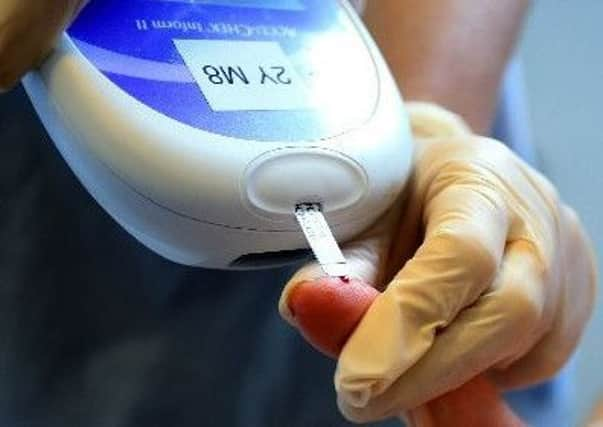Diabetes a growing problem in Northern Ireland, figures reveal


New analysis released today shows that across the UK one in ten people over 40 is now living with a diagnosis of Type 2 diabetes.
The figures from Diabetes UK show that there are 3.8 million people living with a diagnosis of diabetes in the UK, and 90 per cent of those have Type 2.
Advertisement
Hide AdAdvertisement
Hide AdAccording to the charity, there are almost one million more people living with Type 2 diabetes who don’t know they have it because they haven’t been diagnosed, bringing the total number up to 4.7 million. And by 2030 it is predicted this number will rise to 5.5 million.
The dramatic increase in obesity rates is the main driver behind so many more people living with Type 2 diabetes in the UK.
While not every case of Type 2 diabetes is caused by excessive weight, it is the single greatest risk factor for developing the condition. Age, family history, and ethnicity can also contribute to someone’s risk, with people of African-Caribbean, Black African, or South Asian descent two to four times more likely to develop Type 2 diabetes than white people, according to Diabetes UK.
Many cases of Type 2 diabetes could be prevented or delayed by healthy eating, being more active, and losing weight if overweight.
Advertisement
Hide AdAdvertisement
Hide AdJillian Patchett, national director at Diabetes UK Northern Ireland, said: “Thousands of Type 2 diabetes cases could be prevented if we help people understand their risk and how to reduce it. Even though the older people get the more likely they are to have Type 2 diabetes, it is never too early to know your risk so that you can make changes to prevent or delay it.”
The symptoms, which involve going to the toilet a lot, being really thirsty, feeling more tired than usual and losing weight without trying, can be easy to miss especially in the early stages. The condition can go undetected for many years, and by the time they’re diagnosed one in three people already have complications with their eyes, feet, kidneys or nerves.
Jillian Patchett continued: “The signs of Type 2 diabetes are often not obvious, that’s why spotting them early can be life-changing. Early diagnosis means that fewer people will experience diabetes-related complications such as sight loss, amputation, kidney failure, stroke and heart disease, because they could seek support to manage their condition effectively as soon as possible.
“We urge everyone to find out their risk of developing Type 2 diabetes with the Know your Risk tool.”
To find out your risk of developing Type 2 diabetes, log on to www.diabetes.org.uk/riskscore
For further information and health advice log on to www.diabetes.org.uk